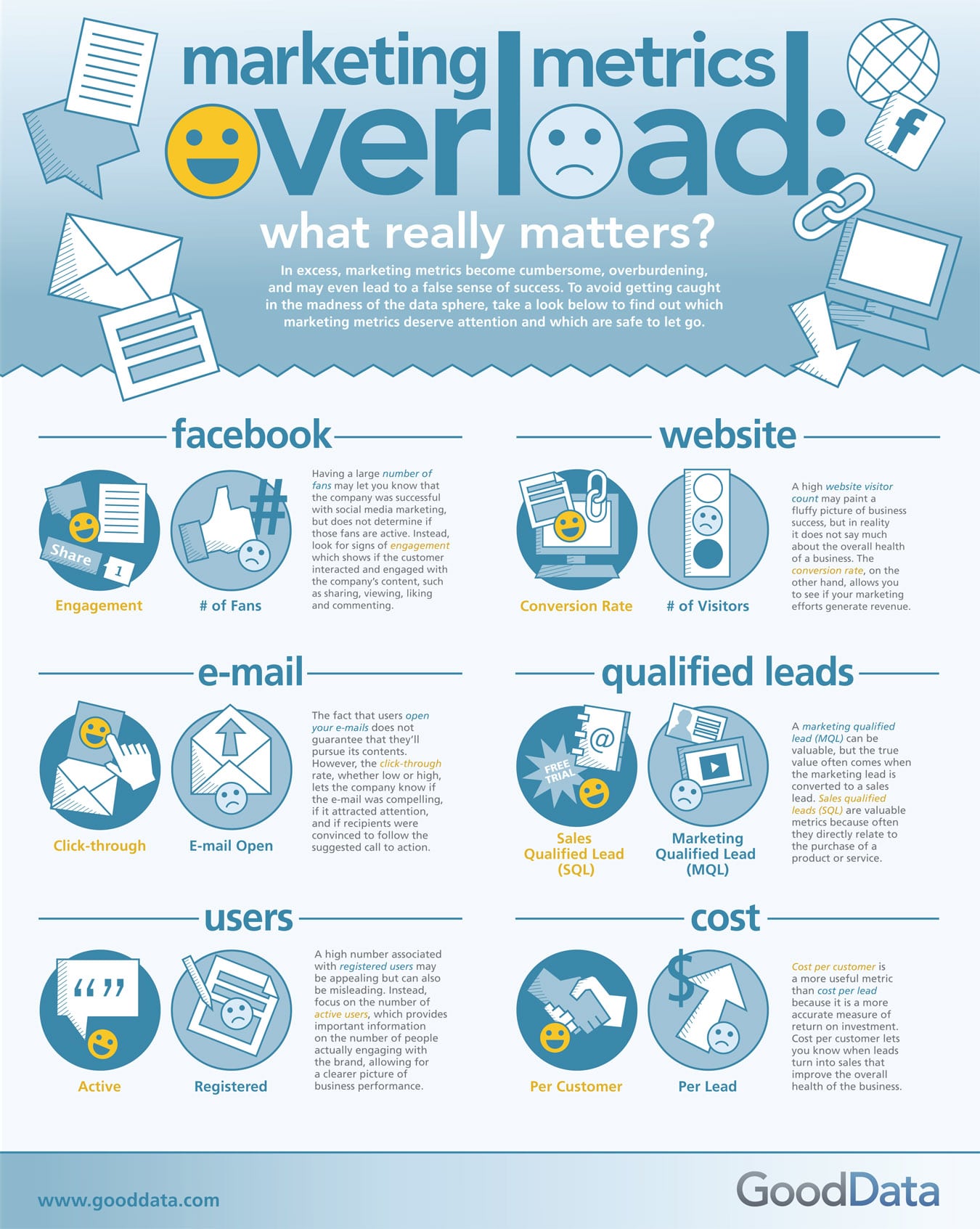One of the hardest tasks when it comes to a company’s success is accurately evaluating marketing metrics. There are so many metrics today that trying to find the most relevant one is sometimes an impossible endeavor. We can look at the number of likes, shares and retweets, but that still wouldn’t tell the true story. Even the ever so trusted pageview marketing metric can be deceiving at times. So how do you tell the good marketing metrics from the bad? Is there even a sure way to measure success anymore?
There are plenty of answers to those questions unfortunately. It depends on what you are looking for. What is the success you are trying to achieve? If success for you is having as many people as possible visiting your website, then I guess the pageview metric is a good one to look at. We run into trouble when we want to assess the success of sales if we look at the pageviews our promotional efforts have accumulated. You see, it doesn’t really matter how many people visit your website, online shop or service if they don’t follow through and convert into leads.
This is the most common problem for marketers and online services. The marketing metrics to use are directly dependent on what success you want to achieve, as I said earlier. In order to accurately assess your success, you need to look at a bunch of factors and what they mean. What are they representing, and in what sense can they become deceiving?
We can consult a short but informative infographic called Marketing Metrics Overload: What Really Matters?, presented by Good Data (design by michee). It provides us with their true story, what they are really saying, and of course what they shouldn’t be used for. It’s when we understand these marketing metrics that we can really assess our success.
To sum this up, no marketing metrics in the world will tell us a more truthful story than that of the engagement ratio we achieve through our marketing efforts. It’s when we have engagement that we know we are doing something right. This is a good thing to remember when you are struggling to understand the marketing metrics in front of you. Engagement should always be the first priority to look at, no matter what the other numbers tell you. In 9 out of 10 cases, your revenue is directly connected to the engagement that your marketing efforts are producing. So remember, marketing metrics are only good when they tell the true story of your success.
Good Data – Marketing Metrics & The Story They Tell
(Click Infographic To Enlarge)
Via: [visual.ly]

COMMENTS